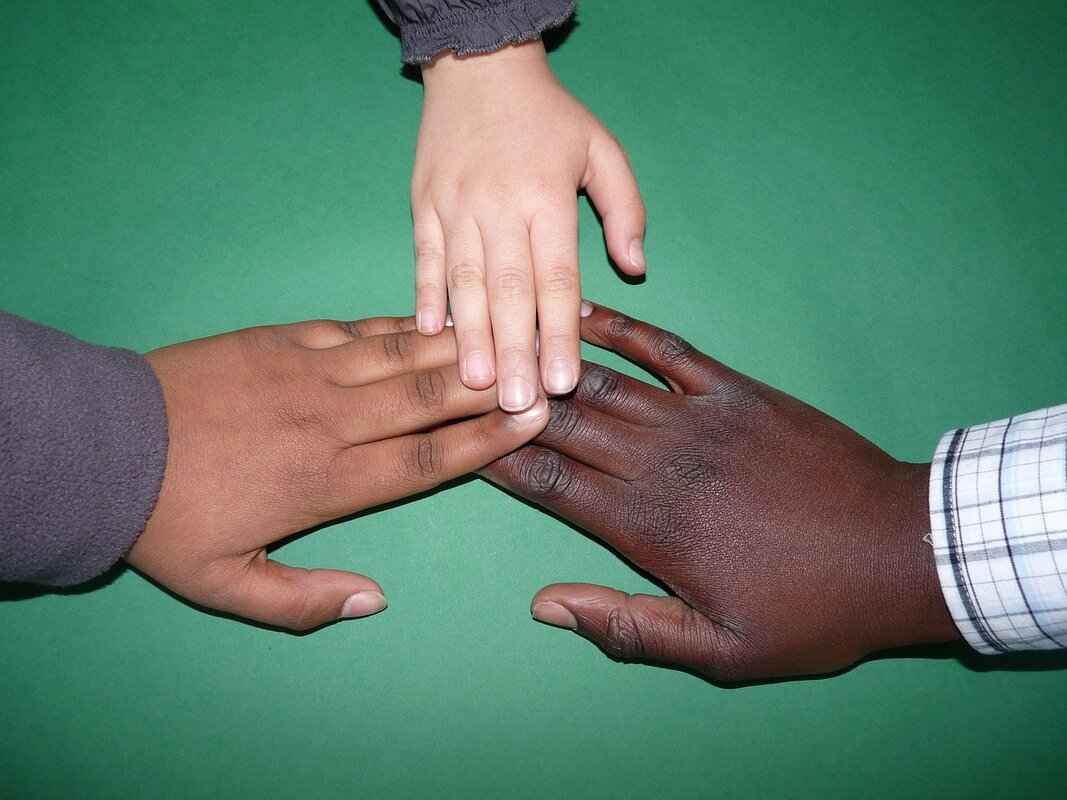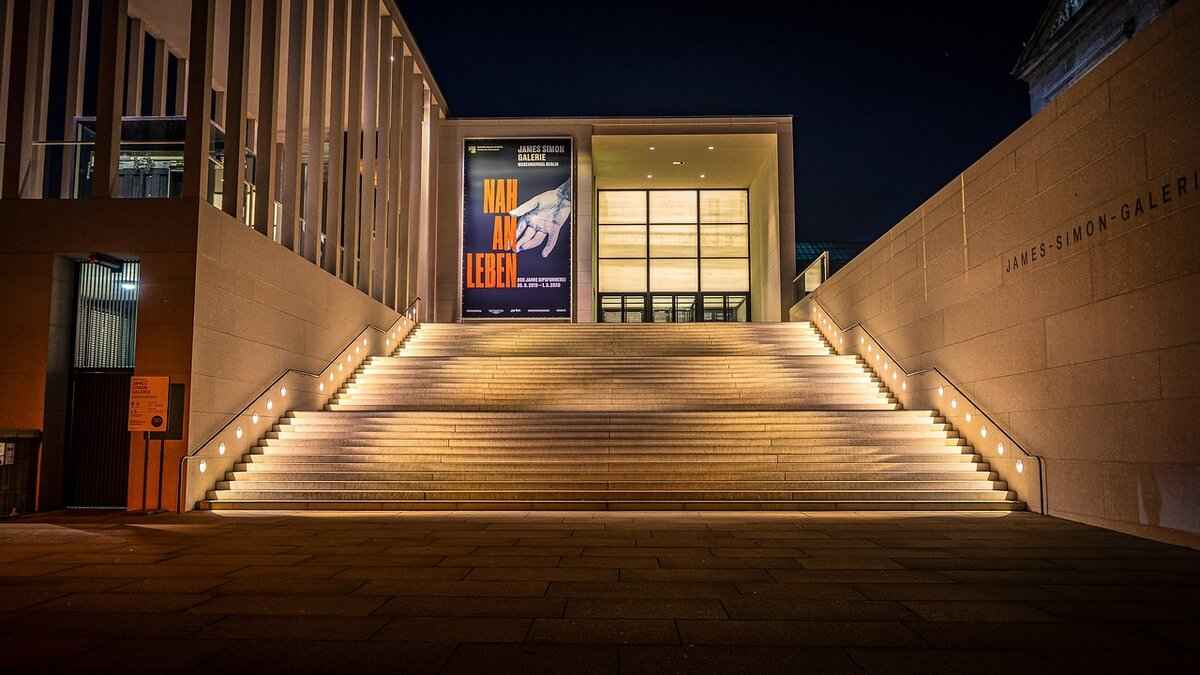This article explores the intricate process of placing a mortgaged house into a trust, outlining essential considerations, benefits, and a step-by-step guide to assist homeowners in navigating this complex decision.
Understanding Trusts and Mortgages
To effectively place a house in trust, it’s crucial to grasp the fundamentals of both trusts and mortgages. A trust is a legal arrangement where one party (the trustee) holds property for the benefit of another (the beneficiary). Mortgages, on the other hand, are loans used to purchase real estate, secured by the property itself. Understanding how these two concepts interact is vital for homeowners considering this option.
Why Place a House in Trust?
Homeowners may opt to place their property in a trust for several reasons:
- Estate Planning: Simplifies asset transfer upon death, ensuring wishes are honored without lengthy probate.
- Asset Protection: Shields the property from creditors and potential lawsuits, adding a layer of security.
- Privacy: Keeps property ownership details confidential, avoiding public records.
Types of Trusts for Real Estate
Various types of trusts can be utilized when placing a house in trust:
- Revocable Trusts: Allow the grantor to retain control of assets and can be altered or revoked.
- Irrevocable Trusts: Transfer ownership permanently, providing tax benefits and asset protection.
- Living Trusts: Created during the grantor’s lifetime, facilitating management and distribution of assets.
Steps to Place a House in Trust with a Mortgage
The process of placing a mortgaged house into a trust involves several key steps:
- Consulting with Professionals: Engage legal and financial experts to navigate trust laws and mortgage agreements.
- Reviewing Your Mortgage Agreement: Check for clauses regarding ownership transfer, which could impact your decision.
- Establishing the Trust: Draft the trust document, specifying terms and appointing a trustee.
- Transferring the Property: Execute the deed to transfer ownership to the trust.
Potential Challenges and Solutions
Homeowners may face challenges when placing a house in trust, especially concerning mortgages:
- Due-on-Sale Clause: Many mortgage agreements include this clause, which could trigger full repayment upon transfer. Understanding how to address this is crucial.
- Tax Implications: Consult with a tax advisor to understand potential tax consequences of transferring property into a trust.
Maintaining the Trust After Creation
Ongoing management of the trust is essential:
- Regularly Reviewing Trust Terms: Periodically assess the trust to ensure it aligns with changing needs and circumstances.
- Managing Mortgage Payments: Ensure timely mortgage payments are made to maintain the trust’s integrity and avoid foreclosure.
In conclusion, placing a mortgaged house into a trust can offer numerous benefits, such as enhanced estate planning and asset protection. However, it requires careful consideration of mortgage agreements, potential challenges, and ongoing management responsibilities. By consulting with professionals and following a structured process, homeowners can successfully navigate this complex decision.

Understanding Trusts and Mortgages
When considering the financial landscape of homeownership, understanding trusts and mortgages is crucial, especially when contemplating placing a house in trust. A trust is a legal arrangement where one party holds property for the benefit of another, while a mortgage is a loan specifically used to purchase real estate, secured by the property itself. This section aims to clarify these concepts and their interrelationship.
To begin, it is essential to grasp the basic definition of a trust. Trusts can serve various purposes, including estate planning, asset protection, and managing property for beneficiaries. They can be revocable, allowing the grantor to modify or dissolve them, or irrevocable, which generally provides more robust asset protection but limits control over the assets.
On the other hand, a mortgage is a financial tool that allows individuals to buy homes without paying the full price upfront. It typically involves a lender providing funds to the borrower, who then repays the loan over time, usually with interest. Importantly, the property itself serves as collateral for the loan, which means that if the borrower defaults, the lender can take possession of the home through foreclosure.
Understanding how these two elements interact is vital for homeowners. When placing a house in trust, the mortgage remains in the borrower’s name unless explicitly stated otherwise in the trust agreement. This means that the homeowner must continue to make mortgage payments, regardless of the property being held in trust. Additionally, some mortgage agreements contain a due-on-sale clause, which can complicate matters. This clause allows the lender to demand full repayment of the loan if the property is transferred, including into a trust.
It is also important to consider the implications of placing a mortgaged property into a trust. Homeowners should review their mortgage documents carefully to identify any restrictions or obligations that may arise from such a transfer. Consulting with legal and financial professionals can provide clarity and ensure compliance with both trust laws and mortgage agreements.
Moreover, the type of trust selected can significantly affect the management of the property. For instance, a revocable living trust allows homeowners to retain control over their property while providing a streamlined process for asset distribution upon death. In contrast, an irrevocable trust may shield the property from creditors but limits the homeowner’s control.
In summary, understanding the nuances of trusts and mortgages is essential for homeowners considering placing their property in trust. This knowledge not only aids in effective estate planning but also ensures that homeowners navigate potential pitfalls associated with their mortgage agreements. By taking the time to comprehend these concepts, individuals can make informed decisions that align with their financial goals.

Why Place a House in Trust?
When considering the future of your property, placing a house in trust can be a strategic move for homeowners. This decision often stems from a variety of motivations, each aimed at enhancing the management and security of your assets. In this section, we will delve into the primary reasons why individuals choose to place their homes in a trust.
- Estate Planning: One of the most compelling reasons for placing a house in trust is to streamline estate planning. By doing so, homeowners can ensure that their property is transferred according to their wishes upon death, avoiding the lengthy and often costly probate process. Trusts allow for a more direct transfer of assets to beneficiaries, which can save time and reduce stress during an already difficult period.
- Asset Protection: Another significant motivation is asset protection. By transferring ownership of the home into a trust, homeowners can shield their property from potential creditors and lawsuits. This protective layer can be particularly beneficial for individuals in high-risk professions or those who have substantial assets that they wish to safeguard.
- Avoiding Probate: Placing a house in trust helps in avoiding probate, a legal process that can be both time-consuming and expensive. In many cases, properties placed in trust can bypass probate entirely, allowing for a smoother transition of ownership and quicker access for beneficiaries.
- Tax Benefits: Depending on the type of trust established, homeowners may also experience tax benefits. Certain trusts can provide tax advantages during the homeowner’s lifetime and for their heirs, making it a financially savvy decision.
- Control Over Asset Distribution: Trusts provide homeowners with the ability to dictate how and when their assets are distributed. This can be particularly important for families with young children or beneficiaries who may not be financially responsible. By setting specific terms within the trust, homeowners can ensure that their wishes are followed precisely.
- Privacy: Another benefit of placing a house in trust is the privacy it offers. Unlike wills, which become public records upon death, trusts remain private documents. This can help maintain confidentiality regarding your estate and its distribution.
In summary, the decision to place a house in trust can be driven by a combination of estate planning, asset protection, and privacy. Understanding these motivations can empower homeowners to make informed decisions that align with their long-term financial goals. As with any significant financial decision, consulting with legal and financial professionals is crucial to navigate the complexities of trust law and ensure that your specific needs are met.
Estate Planning Benefits
When it comes to estate planning, utilizing a trust can significantly streamline the process of transferring assets after death. This method not only ensures that your wishes are respected but also helps avoid the often lengthy and costly probate process. In this section, we will explore the numerous benefits of using a trust for estate planning.
- Efficient Asset Transfer: One of the primary advantages of a trust is the ability to transfer assets quickly and efficiently. Unlike wills, which must go through probate, assets held in a trust can be distributed directly to beneficiaries without court intervention. This can save time and reduce stress for your loved ones during a difficult period.
- Privacy Protection: Trusts offer a level of privacy that wills do not. Since probate proceedings are public, anyone can access the details of your estate. However, trusts remain private documents, ensuring that your financial affairs and asset distribution plans stay confidential.
- Control Over Asset Distribution: Trusts allow you to specify how and when your assets are distributed. For instance, you can set conditions for distribution, such as age milestones or specific life events. This level of control ensures that your beneficiaries receive their inheritance according to your wishes.
- Avoiding Probate Costs: The probate process can be expensive, with court fees, attorney fees, and other costs adding up quickly. By placing your assets in a trust, you can effectively bypass these expenses, allowing more of your estate to go to your beneficiaries.
- Continued Management of Assets: If you have minor children or beneficiaries who may not be financially responsible, a trust can provide ongoing management of assets until they are ready to inherit. This ensures that the assets are used wisely and for the intended purposes.
- Tax Benefits: Depending on the type of trust you establish, there may be potential tax advantages. Certain trusts can help minimize estate taxes, allowing you to leave more for your heirs.
In addition to these benefits, trusts can also provide peace of mind. Knowing that your assets will be handled according to your wishes and that your loved ones will be taken care of can alleviate some of the stress associated with estate planning.
Furthermore, it is essential to consider the long-term implications of your estate planning decisions. Regularly reviewing and updating your trust can help ensure that it continues to meet your needs and reflects any changes in your life circumstances, such as marriage, divorce, or the birth of a child.
In summary, the estate planning benefits of using a trust are numerous. From avoiding probate to providing privacy and control over asset distribution, trusts are a powerful tool for ensuring that your wishes are honored after your passing. By taking the time to establish a trust, you can provide clarity and support for your loved ones during a challenging time.
Asset Protection
When it comes to safeguarding your home from unexpected financial troubles, placing a house in trust can be a wise decision. This strategy not only aids in but also provides peace of mind for homeowners. In this section, we will explore how trusts serve as a protective barrier against potential creditors and lawsuits, ensuring your property remains secure.
A trust is a legal arrangement where a third party, known as the trustee, holds the title to your property for the benefit of another party, the beneficiary. By placing your house in a trust, you effectively create a shield around your asset, making it more challenging for creditors to claim it in the event of financial difficulties or legal disputes.
One of the primary benefits of using a trust for asset protection is that it can help you maintain control over your property while minimizing exposure to risk. For instance, if you face a lawsuit or significant debt, the trust can keep your home out of reach for creditors, provided that the trust was established for legitimate reasons and not as a means to defraud creditors.
Moreover, trusts can offer a layer of anonymity. Unlike traditional property ownership, where your name is publicly recorded, a trust can keep your identity private. This can deter potential lawsuits since individuals are less likely to pursue claims against anonymous entities.
- Asset Separation: By placing your home in a trust, you separate it from your personal assets. This separation can be crucial in protecting your home from claims related to your personal liabilities.
- Protection from Probate: Trusts can also prevent your house from going through probate, which can be a lengthy and public process. This means that your property can be transferred to your beneficiaries more quickly and privately.
- Flexibility: Trusts come in various forms, allowing you to choose one that best fits your needs. For example, a revocable trust allows you to retain control and modify the trust terms, while an irrevocable trust can provide stronger asset protection.
However, it is crucial to understand that not all trusts provide the same level of protection. For example, if a trust is created with the intent to defraud creditors, courts may rule it invalid. Therefore, it is advisable to consult with a legal expert to ensure that your trust is set up correctly and complies with state laws.
In addition to protecting your home from creditors, trusts can also be beneficial in estate planning. By designating beneficiaries within the trust, you can ensure that your property is distributed according to your wishes after your passing, further enhancing the security of your asset.
In conclusion, placing your house in a trust offers significant benefits, shielding your property from creditors and legal challenges. By understanding the mechanics of trusts and working with professionals, you can create a robust strategy to protect your most valuable asset. Whether for estate planning or liability protection, trusts are a powerful tool in securing your financial future.

Types of Trusts for Real Estate
When considering the placement of a house in trust, it is essential to understand the different types of trusts available and their specific applications in real estate. Each type of trust serves unique purposes and comes with its own set of advantages and limitations. Below, we explore the most common types of trusts used in real estate transactions.
- Revocable Trusts: These trusts allow the grantor to retain control over the assets during their lifetime. The grantor can modify or revoke the trust at any time, making it a flexible option for estate planning. One of the primary benefits is that assets in a revocable trust avoid probate, simplifying the transfer process upon death.
- Irrevocable Trusts: Unlike revocable trusts, irrevocable trusts cannot be altered or revoked once established. This type of trust is often used for asset protection, as the assets are removed from the grantor’s estate, potentially shielding them from creditors and lawsuits. However, this means the grantor relinquishes control over the assets.
- Living Trusts: A living trust is created during the grantor’s lifetime and can be either revocable or irrevocable. This type of trust is particularly advantageous for homeowners, as it allows for seamless management of the property and ensures that it is passed on to beneficiaries without the complications of probate.
- Testamentary Trusts: Established through a will, testamentary trusts come into effect upon the grantor’s death. These trusts can be beneficial for managing assets for minor children or beneficiaries who may not be financially responsible. They provide a structured way to distribute assets over time.
- Land Trusts: These specialized trusts are used primarily for holding real estate. The property owner transfers their property into the trust, and the trustee manages it. Land trusts offer privacy regarding property ownership and can simplify the transfer of real estate assets.
- Special Needs Trusts: Designed to benefit individuals with disabilities, special needs trusts allow for the provision of financial support without jeopardizing the beneficiary’s eligibility for government assistance programs. This type of trust can hold real estate and other assets to ensure the beneficiary’s quality of life.
- Charitable Trusts: These trusts are established to benefit a charitable organization while providing tax advantages to the grantor. Charitable remainder trusts, for instance, allow the grantor to receive income from the trust during their lifetime, with the remainder going to charity upon their death.
Understanding these various types of trusts is crucial for homeowners considering placing their property in trust. Each type offers distinct benefits tailored to different financial situations and estate planning goals. Consulting with legal and financial professionals can help determine the most suitable trust type based on individual circumstances, ensuring that the homeowner’s wishes are effectively met while maximizing the benefits of trust ownership.
Revocable vs. Irrevocable Trusts
When it comes to estate planning, understanding the differences between revocable and irrevocable trusts is essential. Each type of trust serves distinct purposes and has significant implications for control over property and tax responsibilities.
A revocable trust allows the grantor to maintain control over the assets within it. This means that the grantor can modify, amend, or even dissolve the trust at any time as long as they are alive and mentally competent. This flexibility makes revocable trusts an attractive option for individuals who may want to change their estate plans as circumstances evolve. However, it is important to note that because the grantor retains control, the assets in a revocable trust are considered part of the grantor’s estate for tax purposes. This can lead to potential estate taxes upon death.
In contrast, an irrevocable trust cannot be modified or dissolved without the consent of the beneficiaries once it has been established. This characteristic provides a higher level of asset protection, as the assets placed in an irrevocable trust are generally not subject to claims from creditors or legal judgments against the grantor. Additionally, because the grantor relinquishes control over these assets, they are not included in the grantor’s taxable estate, which can be beneficial for estate tax planning.
| Feature | Revocable Trust | Irrevocable Trust |
|---|---|---|
| Control | Grantor retains control | Grantor loses control |
| Tax Implications | Assets are part of the estate | Assets are excluded from the estate |
| Flexibility | Highly flexible, can be amended | Rigid, cannot be amended |
| Asset Protection | Limited protection | Strong protection |
Choosing between a revocable and an irrevocable trust ultimately depends on individual circumstances, including financial goals and personal preferences. For those wanting flexibility and control, a revocable trust may be the best choice. However, for individuals focused on asset protection and minimizing estate taxes, an irrevocable trust could provide significant advantages.
Additionally, it is crucial to consult with legal and financial professionals when deciding which type of trust is most appropriate for your situation. They can provide tailored advice based on your unique circumstances, ensuring that your estate planning aligns with your long-term goals.
In summary, understanding the nuances between revocable and irrevocable trusts is vital for effective estate planning. Each type of trust has distinct benefits and drawbacks, making it essential to carefully consider your options and seek expert guidance before making a decision.
Living Trusts
have gained significant popularity among homeowners, especially those with mortgaged properties. They offer a flexible and efficient way to manage assets while ensuring that the homeowner’s wishes are honored after their passing. In this section, we will explore how living trusts function, their advantages, and their specific benefits in the context of managing a mortgaged property.
A living trust, also known as an inter vivos trust, is established during the lifetime of the grantor (the person creating the trust). This trust allows the grantor to retain control over their assets while providing a mechanism for the seamless transfer of those assets upon death. One of the primary benefits of a living trust is that it bypasses the lengthy and often costly probate process, allowing for quicker distribution of assets to beneficiaries.
When a homeowner places their property into a living trust, they effectively transfer ownership of the property to the trust while retaining the right to live in and use the property. This means that the homeowner can continue to make mortgage payments and manage the property as they normally would. The trust becomes the legal owner of the property, but the grantor maintains all rights and responsibilities associated with it.
- Estate Planning Efficiency: Living trusts streamline the estate planning process, allowing for the direct transfer of property to beneficiaries without the delays of probate.
- Privacy: Unlike wills, which become public records during probate, living trusts remain private, protecting the details of your estate from public scrutiny.
- Flexibility: Homeowners can modify or revoke the trust at any time, allowing for adjustments as personal circumstances change.
- Asset Protection: While living trusts do not offer complete asset protection from creditors, they can provide some level of security against claims, especially when combined with other legal strategies.
For homeowners with a mortgage, it’s essential to understand how placing a property in a living trust may affect their mortgage obligations. Most lenders allow properties to be placed in a living trust, but homeowners should review their mortgage agreements for any due-on-sale clauses that may trigger full repayment of the loan upon transfer of ownership. Consulting with a legal professional can help clarify these terms and ensure compliance with lender requirements.
Additionally, homeowners must continue to make mortgage payments in a timely manner to avoid default. The trust itself does not change the terms of the mortgage, so maintaining regular payments is crucial. Homeowners can manage these payments through the trust, ensuring that the financial obligations are met while still benefiting from the advantages of the trust structure.
In summary, living trusts offer a practical solution for homeowners looking to manage their mortgaged properties effectively. By understanding how these trusts work and their associated benefits, homeowners can make informed decisions that align with their estate planning goals and financial strategies.

Steps to Place a House in Trust with a Mortgage
Placing a house in trust with a mortgage can seem daunting, but it is a manageable process when approached methodically. This section outlines the key steps involved in ensuring a smooth transition, allowing homeowners to protect their assets while maintaining their mortgage obligations.
- Consult with Professionals: The first step in the process is to seek advice from qualified legal and financial professionals. An attorney with experience in estate planning and trusts can provide invaluable guidance on the implications of placing your home in trust, while a financial advisor can help assess the impact on your financial situation.
- Understand Your Mortgage Agreement: Before proceeding, it is crucial to review your mortgage agreement thoroughly. Look for any clauses that might restrict transferring the property into a trust, such as a due-on-sale clause, which allows the lender to demand full payment of the loan upon transfer of ownership.
- Choose the Right Type of Trust: Selecting the appropriate type of trust is essential. Revocable trusts allow you to retain control over the assets, while irrevocable trusts provide greater asset protection but limit your control. Consult your attorney to determine which option aligns best with your goals.
- Draft the Trust Document: Once you have decided on the type of trust, the next step is to draft the trust document. This legal document outlines the terms of the trust, including the trustee’s responsibilities and the beneficiaries. Ensure that it complies with state laws and accurately reflects your wishes.
- Transfer the Property into the Trust: After the trust document is complete, you will need to formally transfer the property into the trust. This typically involves executing a new deed that names the trust as the property owner. Your attorney can assist with this process to ensure all legal requirements are met.
- Notify Your Lender: It is important to inform your mortgage lender about the transfer of the property into the trust. This step is crucial to avoid any misunderstandings regarding your mortgage obligations and to ensure that the lender recognizes the trust as the new owner.
- Manage Mortgage Payments: After the property is in the trust, maintaining timely mortgage payments is vital. Set up a system to ensure that payments are made on time, as failure to do so could jeopardize the trust and your home.
- Review and Update the Trust Regularly: Trusts are not static; they require regular reviews to ensure they continue to meet your needs and reflect any changes in your circumstances. Schedule periodic meetings with your attorney to discuss any necessary updates.
By following these steps, homeowners can successfully place their mortgaged property into a trust. This process not only protects their assets but also ensures that their wishes regarding the property are honored in the future. With the right guidance and careful planning, placing a house in trust can be a strategic move in estate planning.
Consulting with Professionals
When considering the complex process of placing a house in trust with an existing mortgage, one of the most crucial steps is consulting with legal and financial professionals. Navigating the intricacies of trust laws and mortgage agreements can be overwhelming for homeowners, making expert advice indispensable.
First and foremost, it is essential to understand that trusts and mortgages operate under different legal frameworks. A trust is a legal arrangement where a trustee holds the title to property for the benefit of another party, while a mortgage is a loan secured by the property itself. This distinction is vital, as placing a mortgaged property into a trust can have significant implications. Thus, consulting with professionals helps ensure that homeowners are making informed decisions that align with their financial goals.
Legal experts can provide insight into trust laws, which vary by jurisdiction. They can clarify how these laws apply to your specific situation, including any potential risks or benefits associated with placing a house in trust. For instance, some jurisdictions may have specific regulations regarding the transfer of property into a trust, which could affect the homeowner’s ability to do so without triggering penalties or complications.
Additionally, financial advisors can help homeowners assess the financial implications of placing a house in trust. This includes understanding how it may affect mortgage payments, property taxes, and overall estate planning. They can also advise on the potential impact on credit scores and the ability to secure future financing.
Moreover, it is crucial to review the mortgage agreement itself before making any decisions. Many mortgage agreements contain clauses that may restrict or complicate the transfer of the property into a trust, such as the due-on-sale clause. This clause allows the lender to demand full repayment of the loan if the property is transferred without their consent. Legal professionals can help interpret these clauses and advise on the best course of action.
In addition to legal and financial guidance, homeowners should also consider consulting with a trustee or estate planner who specializes in real estate. These professionals can offer tailored advice on the types of trusts that may be most beneficial for your situation, such as revocable or irrevocable trusts, and how they can be structured to meet your needs.
Finally, it is essential to keep in mind that the process of placing a house in trust is not a one-time event. Ongoing consultation with professionals is necessary to ensure that the trust remains compliant with changing laws and continues to meet the homeowner’s objectives. Regular reviews can help identify any adjustments needed to adapt to life changes, such as marriage, divorce, or changes in financial status.
In summary, the importance of consulting with legal and financial professionals when considering placing a house in trust with a mortgage cannot be overstated. Their expertise can provide clarity on complex issues, help navigate potential pitfalls, and ultimately lead to better-informed decisions that protect both the property and the homeowner’s financial interests.
Reviewing Your Mortgage Agreement
When considering placing your house in a trust, one of the most critical steps is to review your mortgage agreement thoroughly. This document outlines the terms of your mortgage and any specific clauses that could affect your ability to transfer ownership of the property. Understanding these clauses is essential to avoid unexpected complications.
- Ownership Transfer Clauses: Look for any clauses that explicitly address the transfer of ownership. Some mortgages contain restrictions that could trigger penalties or force you to pay the balance in full if you place the property in a trust.
- Due-on-Sale Clause: This is a common provision in mortgage agreements. It allows the lender to demand full repayment of the loan if the property is sold or transferred without their consent. If you plan to place your home in a trust, it’s crucial to understand how this clause might apply.
- Notification Requirements: Some lenders require that you inform them before transferring ownership or placing the property in a trust. Failing to comply with these requirements could lead to legal issues or financial penalties.
Additionally, it’s important to assess how placing your home in a trust might affect your mortgage terms. For instance, if the trust is revocable, you may retain control over the property, which could mitigate some risks associated with the due-on-sale clause. However, if the trust is irrevocable, you could lose control, making it vital to weigh the pros and cons carefully.
Consulting with a legal professional who specializes in real estate and trusts can provide you with tailored advice. They can help interpret complex legal language and guide you through the implications of your mortgage agreement. This step is particularly crucial if your mortgage contains unique clauses or stipulations that may not be standard.
Moreover, consider the impact on your estate planning. Placing your home in a trust can have significant benefits, such as avoiding probate and ensuring that your assets are distributed according to your wishes. However, if your mortgage agreement restricts this action, it could undermine your estate planning goals.
In summary, reviewing your mortgage agreement is a fundamental step in the process of placing your house in a trust. By understanding the specific clauses and their implications, you can make informed decisions that align with your financial and estate planning objectives. Always seek professional advice to navigate this complex landscape effectively.

Potential Challenges and Solutions
Placing a house in a trust can be a strategic move for many homeowners, but it often comes with challenges, especially when a mortgage is involved. This section delves into the potential obstacles you might encounter and offers practical solutions to help you navigate these complexities.
One of the most significant challenges when placing a mortgaged house in a trust is the due-on-sale clause. This clause allows lenders to demand full repayment of the loan if the property is transferred to another party, including a trust. Homeowners must carefully review their mortgage agreements to identify any clauses that could trigger this provision.
- Solution: Contact your lender for clarification on their policies regarding trusts. Some lenders may allow property transfers to certain types of trusts without invoking the due-on-sale clause.
Another challenge involves understanding the tax implications of placing your house in a trust. Depending on the type of trust you establish, there may be different tax consequences. For instance, transferring a property into an irrevocable trust can have gift tax implications, while a revocable trust may not.
- Solution: Consult with a tax professional or estate planner to assess the potential tax liabilities and benefits of your specific situation before making any decisions.
Once the property is in a trust, ensuring that mortgage payments are made consistently is crucial. Failure to do so can jeopardize both the trust and the homeowner’s credit rating.
- Solution: Set up automated payments through your bank or trust account to ensure timely mortgage payments. Additionally, designate a trusted individual who can manage these payments if you become unable to do so.
Some lenders may require formal approval before allowing a property to be placed in a trust. This can lead to delays and additional paperwork, which can be frustrating for homeowners eager to finalize their estate planning.
- Solution: Prepare all necessary documentation in advance, including trust agreements and identification. Engaging a real estate attorney can also facilitate smoother communication with your lender.
Not all trusts are created equal. Choosing the wrong type of trust for your property can lead to complications down the line. For example, an irrevocable trust may offer asset protection but limit your control over the property.
- Solution: Evaluate your goals and consult with an estate planning attorney to determine the most suitable type of trust for your needs. They can provide insights into the benefits and drawbacks of various trust structures.
After establishing a trust, it’s essential to periodically review its terms and the status of the mortgage. Changes in personal circumstances or financial situations may necessitate adjustments to the trust.
- Solution: Schedule annual reviews with your attorney or financial advisor to assess the trust’s effectiveness and make any necessary updates.
In summary, while placing a house in trust can present challenges, particularly with mortgages, understanding these potential issues and implementing practical solutions can help homeowners achieve their estate planning goals. By proactively addressing these concerns, you can ensure a smoother process and protect your assets effectively.
Due-on-Sale Clause Considerations
When considering placing a house in trust while it still has an outstanding mortgage, it is crucial to be aware of the due-on-sale clause. This clause is a provision commonly found in mortgage agreements that allows the lender to demand full repayment of the loan if the property is sold or transferred without their consent. Understanding this clause is essential for homeowners looking to navigate the complexities of placing their property in a trust.
The due-on-sale clause serves as a protective measure for lenders, ensuring that they can assess the creditworthiness of any new owner. If a homeowner places their mortgaged property into a trust, the lender may interpret this action as a transfer of ownership, triggering the clause. This could lead to the lender demanding immediate payment of the remaining mortgage balance, which can be financially burdensome for many homeowners.
To effectively address the implications of a due-on-sale clause, homeowners should take several steps:
- Review the Mortgage Agreement: Homeowners should carefully read their mortgage documents to identify the presence of a due-on-sale clause. Understanding the specific language and conditions of this clause is vital.
- Consult with Professionals: Engaging with a real estate attorney or financial advisor can provide valuable insights. These professionals can help interpret the implications of the clause and suggest strategies to mitigate risks.
- Contact the Lender: Before proceeding with placing the house in trust, it is advisable to communicate with the mortgage lender. Some lenders may allow the transfer to a trust without enforcing the due-on-sale clause, especially if the homeowner remains a beneficiary of the trust.
- Consider Alternatives: If the due-on-sale clause poses significant challenges, homeowners might explore alternative estate planning options. For instance, establishing a revocable living trust may provide the desired benefits without triggering the clause.
It is also essential to understand that not all lenders enforce due-on-sale clauses uniformly. Some may choose to overlook this provision, especially if the homeowner continues to make timely payments and remains in the trust. However, this should not be assumed, and proactive communication with the lender is crucial.
In summary, the presence of a due-on-sale clause can complicate the process of placing a house in trust. Homeowners must conduct thorough research, seek professional advice, and maintain open lines of communication with their lender to navigate this complex landscape effectively. By taking these steps, homeowners can better protect their interests and ensure a smoother transition into trust ownership.
Tax Implications
When considering the decision to place a house in trust, understanding the tax implications is crucial. This part of the article will delve into the potential tax consequences that may arise and offer guidance on how to plan accordingly to mitigate any adverse effects.
First and foremost, it is essential to recognize that placing a property in a trust can lead to various tax implications. These can include property taxes, capital gains taxes, and income taxes, depending on the type of trust established and the specific circumstances surrounding the property.
- Property Taxes: When a house is placed in a trust, it may still be subject to local property taxes. However, some jurisdictions offer exemptions or reductions for properties held in certain types of trusts, particularly those that are designed for estate planning purposes.
- Capital Gains Taxes: If the property appreciates in value while in the trust, the eventual sale of the property may trigger capital gains taxes. Understanding how the trust is structured—whether it is revocable or irrevocable—can significantly influence the tax liabilities incurred upon sale.
- Income Taxes: Depending on the type of trust, income generated from the property (such as rental income) may be taxable. Revocable trusts typically allow the grantor to report income on their personal tax return, while irrevocable trusts may have different reporting requirements.
To navigate these potential tax implications effectively, homeowners should take the following steps:
- Consult with Tax Professionals: Engaging with a tax advisor or accountant who specializes in trusts can provide invaluable insights tailored to your specific situation. They can help identify potential tax liabilities and suggest strategies for minimizing them.
- Review Trust Structure: The choice between a revocable and irrevocable trust can significantly impact tax consequences. Revocable trusts allow for greater flexibility and control, while irrevocable trusts may offer tax benefits but limit access to the property.
- Consider Timing of Property Transfer: Timing can play a critical role in determining tax implications. Transferring the property at a time when its value is lower can help minimize capital gains taxes in the future.
Furthermore, it is advisable to keep detailed records of any improvements made to the property, as these can potentially increase the basis and reduce future capital gains tax liability. Homeowners should also be aware of the gift tax implications that may arise if the property is transferred to a trust as a gift to beneficiaries.
In conclusion, the tax consequences of placing a house in trust are multifaceted and can vary significantly based on the trust’s structure and the homeowner’s circumstances. By conducting thorough research and consulting with qualified professionals, homeowners can make informed decisions that align with their financial goals and minimize potential tax burdens.

Maintaining the Trust After Creation
After establishing a trust, ongoing management is necessary to ensure that the trust operates smoothly and fulfills its intended purpose. This section outlines the responsibilities involved in maintaining a trust with a mortgaged property, emphasizing the importance of diligence and organization.
- Regularly Reviewing Trust Terms: It is essential to periodically review the terms of the trust to ensure they continue to align with your current circumstances and goals. Changes in family dynamics, financial situations, or legal requirements may necessitate amendments to the trust. A good rule of thumb is to conduct a review every few years or after significant life events.
- Managing Mortgage Payments: Ensuring that mortgage payments are made on time is crucial for maintaining the trust and protecting the property. This can be achieved by setting up automatic payments or creating a dedicated trust account to manage these expenses. Additionally, keeping accurate records of all payments can help in case of disputes or audits.
- Communicating with Beneficiaries: Open communication with beneficiaries is vital for maintaining trust. Keeping them informed about the trust’s status, property management, and any changes in terms fosters transparency and trust. Regular updates can help mitigate misunderstandings and conflicts.
- Tax Compliance: Trusts can have specific tax obligations, including filing returns and paying taxes on income generated by the trust. It is essential to stay informed about tax requirements and deadlines to avoid penalties. Consulting with a tax professional can help ensure compliance and optimize tax strategies.
- Property Maintenance: If the trust holds a mortgaged property, regular maintenance is crucial to preserve its value. This includes routine inspections, repairs, and updates as needed. Neglecting property maintenance can lead to decreased value and increased liabilities.
- Updating Beneficiary Designations: As life circumstances change, it may be necessary to update beneficiary designations within the trust. This ensures that the property is passed on according to your current wishes, reflecting any changes in relationships or priorities.
- Consulting with Professionals: Engaging with legal and financial professionals regularly can provide valuable insights into trust management. These experts can help navigate complex legal requirements, tax implications, and financial strategies, ensuring that the trust remains compliant and effective.
Maintaining a trust with a mortgaged property requires careful attention to detail and proactive management. By staying organized and informed, trustees can ensure that the trust serves its intended purpose and protects the interests of all beneficiaries involved.
Regularly Reviewing Trust Terms
When it comes to managing a trust, especially one that includes a mortgaged property, regular reviews of the trust terms are essential. These reviews ensure that the trust continues to align with your financial goals, legal requirements, and personal circumstances. Understanding how often to review your trust and what factors to consider can significantly impact the effectiveness of your estate planning.
Frequency of Reviews
It is generally recommended to review your trust at least once every three to five years. However, certain life events may necessitate more frequent reviews. For instance, major changes such as marriage, divorce, the birth of a child, or significant financial shifts should prompt an immediate reassessment. Additionally, changes in laws or tax regulations may also affect the trust’s effectiveness.
Key Factors to Consider
- Changes in Personal Circumstances: Life events can alter your wishes regarding asset distribution. Regular reviews allow you to adjust the trust to reflect these changes.
- Financial Situations: Fluctuations in your financial status, such as acquiring new assets or incurring debts, may require adjustments to the trust to ensure it meets your current needs.
- Trustee Performance: Evaluating the performance of your trustee is crucial. If the trustee is not managing the trust according to your expectations, it may be time to consider a change.
- Legal Compliance: Laws governing trusts can change. Regular reviews help ensure that your trust remains compliant with current regulations.
- Beneficiary Needs: The needs of your beneficiaries may evolve over time. Regularly assessing their circumstances can help you make informed decisions about distributions.
Documenting Changes
When you identify necessary changes during a review, it’s important to document them properly. This may involve updating the trust document itself or creating an amendment. Always consult with a legal professional to ensure that any modifications are valid and enforceable.
Professional Guidance
Engaging with a trust attorney or a financial advisor can provide valuable insights during your review process. These professionals can help identify potential issues and recommend strategies to optimize your trust management.
In conclusion, regularly reviewing your trust terms is not just a best practice; it is a necessary step in effective estate planning. By staying proactive and informed, you can ensure that your trust continues to serve your interests and those of your beneficiaries.
Managing Mortgage Payments
Managing mortgage payments within a trust structure is a vital aspect of ensuring the trust’s integrity and the property’s financial health. Timely payments not only maintain the trust’s credibility but also safeguard the property from potential foreclosure. Below are essential tips and strategies for effectively managing mortgage payments in a trust.
- Establish a Dedicated Trust Account: Create a separate bank account specifically for the trust. This account should be used exclusively for mortgage payments and other trust-related expenses. By doing so, you can easily track financial transactions and ensure that funds are available for timely payments.
- Set Up Automatic Payments: Consider setting up automatic payments from the trust account to the mortgage lender. Automating payments can help prevent missed deadlines and late fees, thus maintaining a good standing with the lender.
- Maintain Clear Records: Keep meticulous records of all transactions related to the mortgage. This includes payment dates, amounts, and any correspondence with the lender. Having organized records can help in resolving any disputes and is essential for annual trust accounting.
- Regularly Review Financial Statements: Periodically review the trust’s financial statements to ensure there are sufficient funds for mortgage payments. This practice allows for early identification of potential cash flow issues that could jeopardize timely payments.
- Communicate with Beneficiaries: If there are multiple beneficiaries involved in the trust, maintain open lines of communication regarding financial responsibilities. Discussing the importance of timely mortgage payments can foster a sense of collective responsibility.
- Consult with a Financial Advisor: Engaging a financial advisor who understands trusts and mortgages can provide valuable insights. They can help you develop a budget that accommodates mortgage payments while ensuring other trust obligations are met.
- Be Aware of the Due-on-Sale Clause: If the mortgage has a due-on-sale clause, it’s crucial to understand its implications. This clause might trigger the full loan balance due if the property is transferred to a trust. Consulting with a legal expert can help navigate this issue effectively.
- Plan for Unexpected Expenses: Always have a contingency plan for unexpected expenses that may arise. Setting aside a portion of the trust funds for emergencies can ensure that mortgage payments remain unaffected during financial fluctuations.
By implementing these strategies, trustees can effectively manage mortgage payments, ensuring the trust remains in good standing and the property is protected. Regular monitoring and proactive management are key to maintaining the trust’s financial health and fulfilling its obligations. Remember, the goal is to preserve the property and uphold the trust’s integrity for the benefit of all beneficiaries involved.
Frequently Asked Questions
- Can I place my mortgaged house in a trust?
Yes, you can place your mortgaged house in a trust, but it’s essential to review your mortgage agreement for any restrictions. Some mortgages have clauses that could complicate this process.
- What are the benefits of putting my house in a trust?
Placing your house in a trust can offer numerous benefits such as avoiding probate, protecting your assets from creditors, and simplifying estate planning. It ensures your property is managed according to your wishes.
- What is a due-on-sale clause?
A due-on-sale clause is a provision in many mortgage agreements that allows the lender to demand full repayment of the loan if the property is sold or transferred. This can be a significant consideration when placing your house in a trust.
- Do I need a lawyer to set up a trust?
While it’s not legally required, consulting with a lawyer is highly recommended. They can help navigate the complexities of trust laws and ensure that your trust is set up correctly.
- How often should I review my trust?
It’s wise to review your trust at least every few years or after significant life events, such as marriage, divorce, or the birth of a child, to ensure it still aligns with your goals and circumstances.














